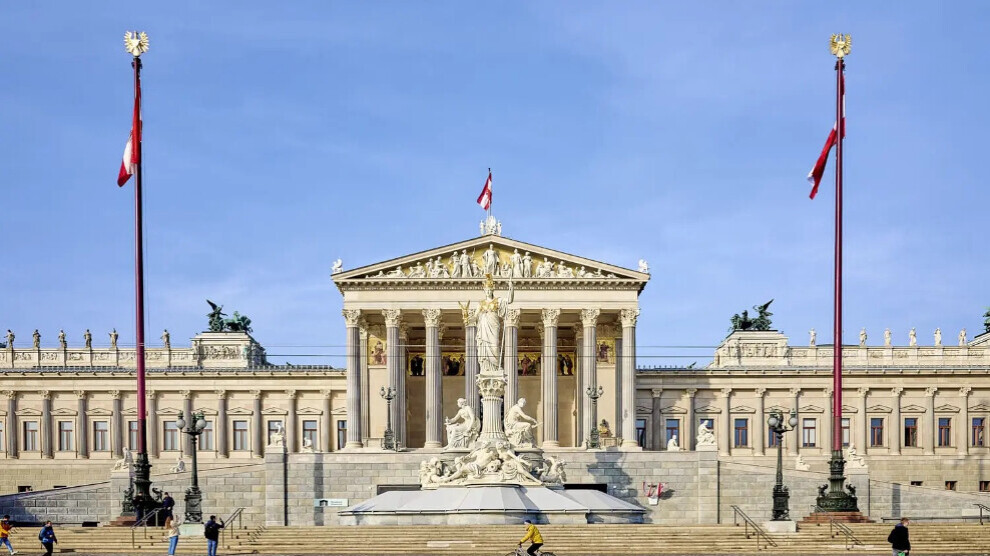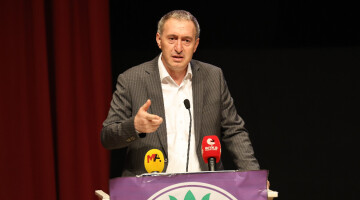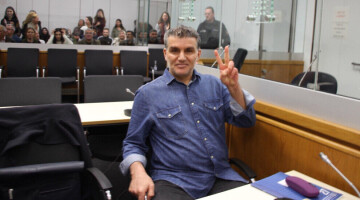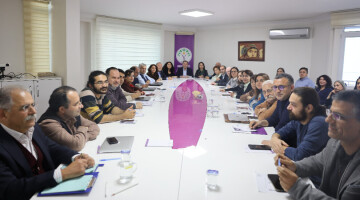In the run-up to the Austrian parliamentary elections on 29 September, the Council of the Kurdish Society in Austria (FEYKOM) sent a questionnaire to Austrian parties to determine their position on the concerns of Austrians of Kurdish origin.
With this initiative, FEYKOM aims to ensure that Kurdish-related issues receive more attention in the election campaign. The Austrian Social Democratic Party (SPÖ), the Austrian Green Party (Die Grünen), the New Austria and Liberal Forum (Neos), the Austrian Communist Party (KPÖ) and the Left Party (LINKS) answered the questions, while the conservative Austrian People's Party (ÖVP) and the right-wing Austrian Freedom Party (FPÖ) did not.
In the responses of the parties, the common view that the isolation of Kurdish People's Leader Abdullah Öcalan is unlawful and should be ended came to the fore.
The Social Democratic Party (SPÖ) stated that Abdullah Öcalan's detention conditions should be regulated in accordance with international law, as is the case for all political prisoners, while the Greens emphasised that they are fighting for the implementation of the so-called Nelson Mandela rules, that prisoners should be treated with dignity and that they support the visits by the CPT (Council of Europe’s Committee for the Prevention of Torture).
The New Austria and Liberal Forum (NEOS) said it is aware of the isolation of Abdullah Öcalan and drew attention to the letter signed by 69 Nobel laureates as part of the Freedom for Abdullah Öcalan campaign. NEOS stated that they are aware of the instrumentalisation of the judiciary in Turkey for political purposes and that they will raise this issue both in Vienna and in Belgium.
The Left Party (LINKS) stated that no prisoner should be held in inhumane conditions and that it fights to ensure it, while the Austrian Communist Party (KPÖ) stated that isolation is a violation of human rights and that everyone should oppose it, that Abdullah Öcalan can play an important role for peace and democratisation in Turkey and that the necessary conditions should be created for him to play this role.
The SPÖ strongly criticised human rights violations in Turkey and Iran and called for the abolition of the sentences against Kurdish politicians in particular. NEOS emphasised its support for the right of peoples to self-determination, while the Greens defended the cultural and political autonomy of the Kurds and called for strengthening the democratic structure in the region. The KPÖ condemned Turkey's military aggression against the Kurdish regions and suggested that Austria could act as a mediator. LINKS, on the other hand, expressed its support for the Kurdish struggle against national oppression and stated that it stands against all kinds of oppression.
The parties also emphasised their opposition to the presence of fascist movements of Turkish origin in Austria, especially the Grey Wolves.
The parties take different approaches regarding the protection of Kurdish refugees. The NEOS emphasises that those who make a legitimate request for protection should be granted this right quickly and correctly. The SPÖ says it defends the legitimate rights of everyone who is in Austria legally and opposes the transfer of conflicts abroad to Austria. The LINKS calls for unconditional protection for Kurdish refugees and opposes any deportation from countries at risk of violence or persecution. The Greens emphasise that human rights are non-negotiable and that the applications of Kurdish refugees must be assessed fairly and quickly. The KPÖ, on the other hand, advocates the protection of all victims of political persecution and takes a clear position against deportations to Turkey.












